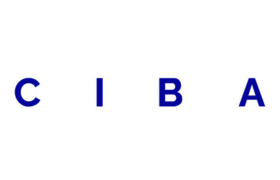Building a strong CV, applying for a job with a potential employer and getting invited for an interview, are already huge achievements that should be acknowledged considering that only a select few get invited to interview.
The next step is the most important part of the process – preparing for the interview. Even the most prepared and qualified candidates can feel unsettled with a difficult question posed by the interviewer.
Compiled in this article are 8 tips on how to get through tough interview questions:
1) Tell me about yourself.
This question is one of the most common and would usually come on early in the interview. Candidates would typically go on for 5-7 minutes discussing subjects that may be irrelevant to the job and this is not necessarily what the interviewer is looking for. Imagine it as an elevator pitch, no more than 1-2 minutes focusing on your work experience, education, what you can bring to the table and perhaps a hobby.
2) What is your biggest weakness?
With this question, the interviewer is trying to test your abilities when faced with a difficult question and it is a test to see how you respond. The candidate should avoid using a good trait and trying to pose it as a weakness like “I am a perfectionist” – it will take the interviewer a second to realise that you just cannot identify your own weaknesses.
3) What is your biggest strength?
The fact that you have been invited for an interview most likely means that you already have strengths that aligns with the job position, but it is different when it is heard from the candidate. There are two things to focus on here; firstly, do not mention too many strengths because it will just sound like you are boasting, up to 3 is sufficient. Secondly, make sure the strengths mentioned are relevant to the job. When applying for an HR job for example, you wouldn’t use digital marketing as a strength.
4) How do you handle stress?
Unfortunately, stress is a common component in the workplace. Employers ask this question to know that you will handle a stressful situation with a positive attitude especially if stress is an integral part of the role you have applied for. Mishandling stressful situations could have a negative impact in the workplace as a whole so it is important for employers to know that the candidate will handle the situation with grace.
The best way to tackle this question is by explaining a stressful situation you handled well in the past.
5) Why have you been out of work for so long?
This question is asked because candidates that have gaps between their work experience are usually put in the “bad pile”, however, the fact that you have been called in for an interview means the employer is giving you a chance to explain yourself rather than assuming the worst (being fired).
The best approach in this case would be to be honest rather than make up a story. If you have a gap due to personal reasons, explain yourself and then emphasise on why now is the right time for you to go back into the market.
6) Why are you leaving your current job?
Candidates need to be very careful with this question because employers are waiting to see if you will speak badly of your previous employer which will reflect on your character. It will not benefit you at all if you complain about your previous job or colleagues.
As opposed to discussing the employer, focus more on yourself and your experience in your previous role. Something like “I have gained a lot of experience from my previous role and am now ready for a new challenge.” This way you show the interviewer that you are willing and ready to take on new challenges and bring over what you have learnt to the new role.
7) Where do you see yourself in 5 years?
Candidates often feel that they are obliged to say that they want to be with the company they have applied for however this should not always be the case. If you sincerely feel that way, then build the career path you see yourself in at this company. Otherwise, you can take a different approach and focus on something you would like to develop over the next five years.
This question is usually asked to find out whether you plan to stay in the company long-term or not because the hiring process is not as easy as it seems and is very time consuming for the employer.
8) Why should I hire you?
Candidates usually hesitate when answering this question as they don’t want to oversell themselves or sound arrogant. The best thing to do is to just add on what you have already said throughout the interview and make sure you haven’t left anything important out. It is vital to highlight the strengths and experiences you have that will complement the role you have applied for.













